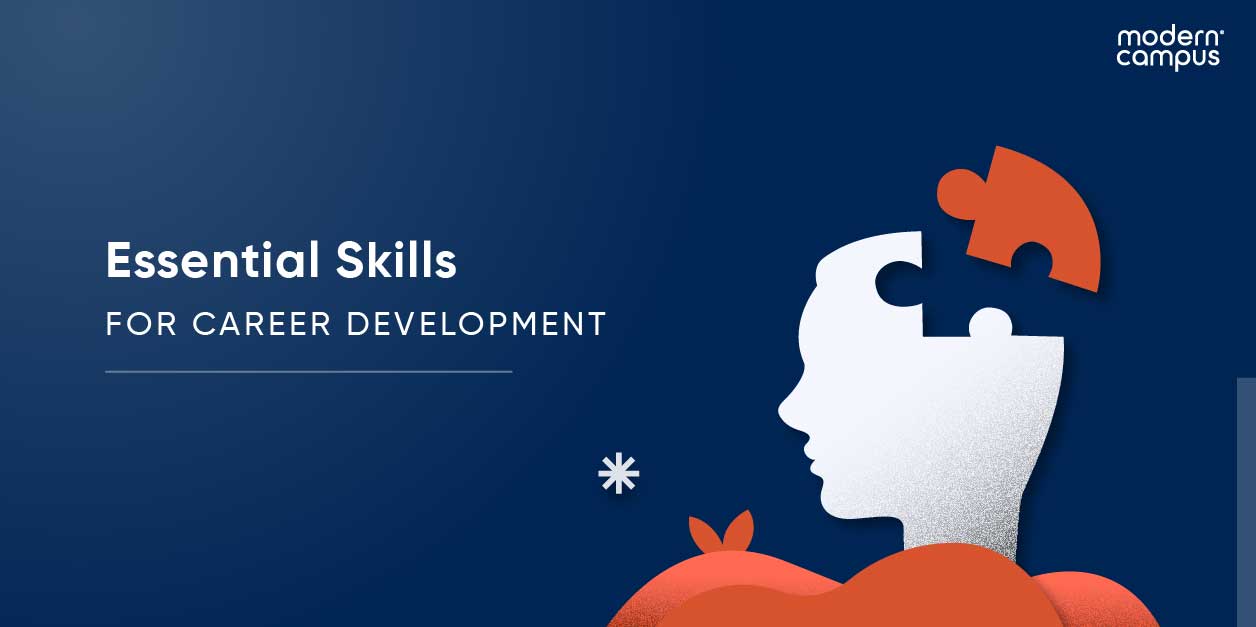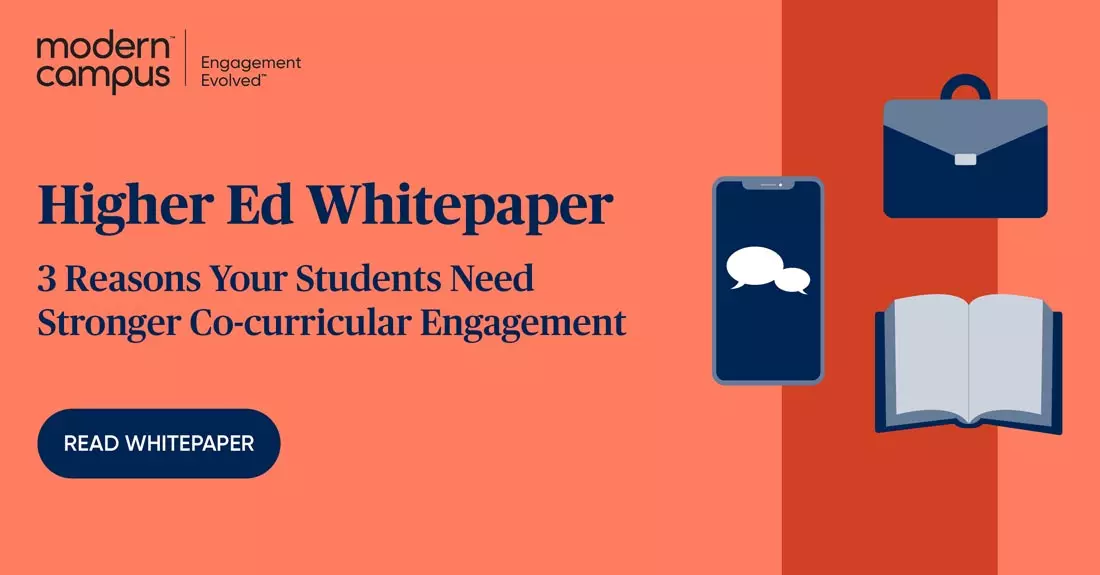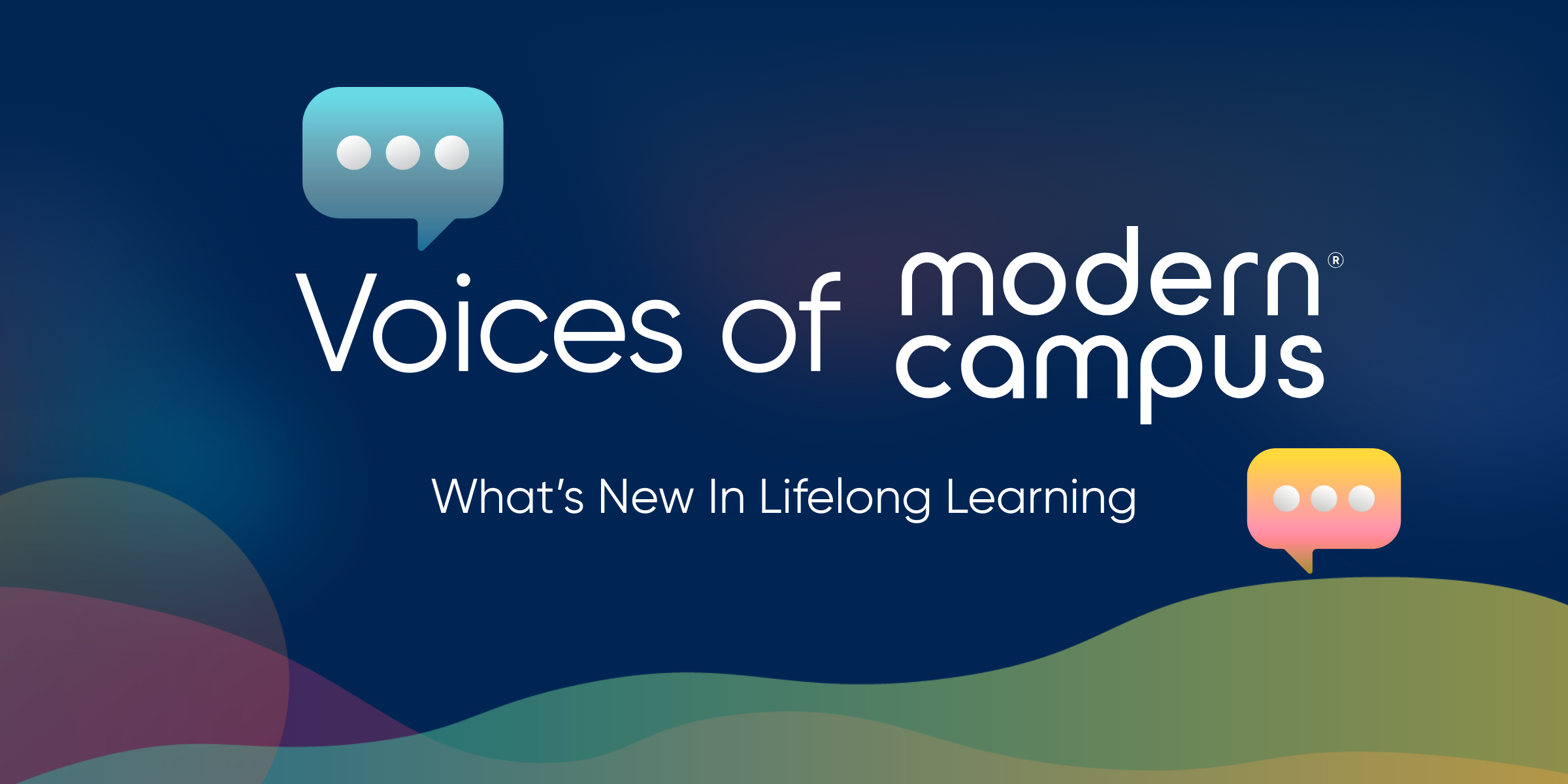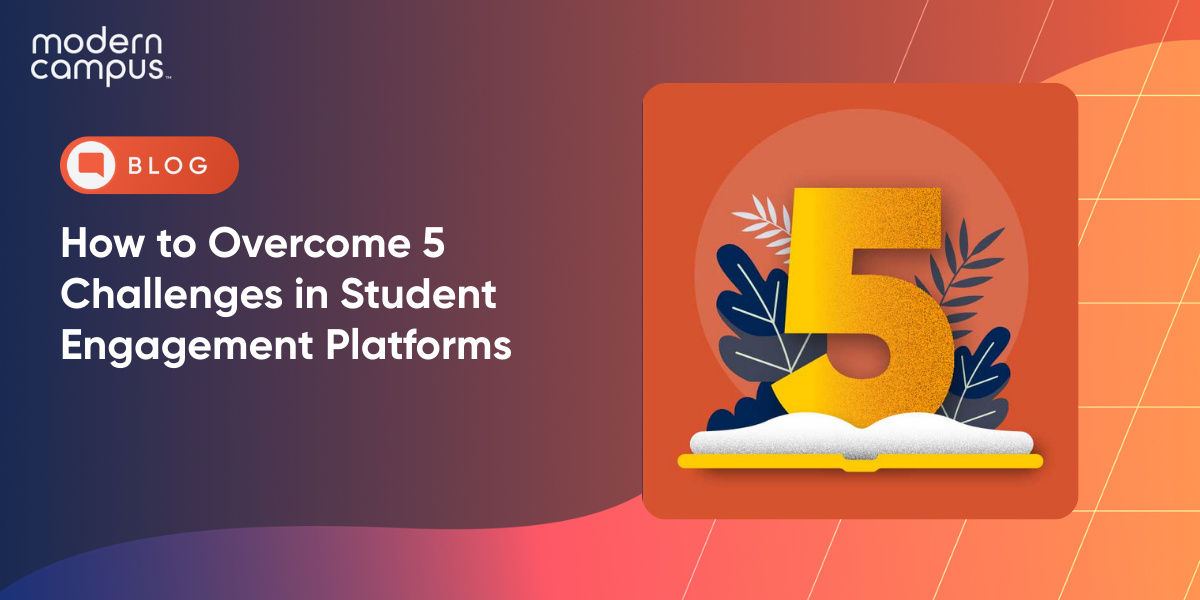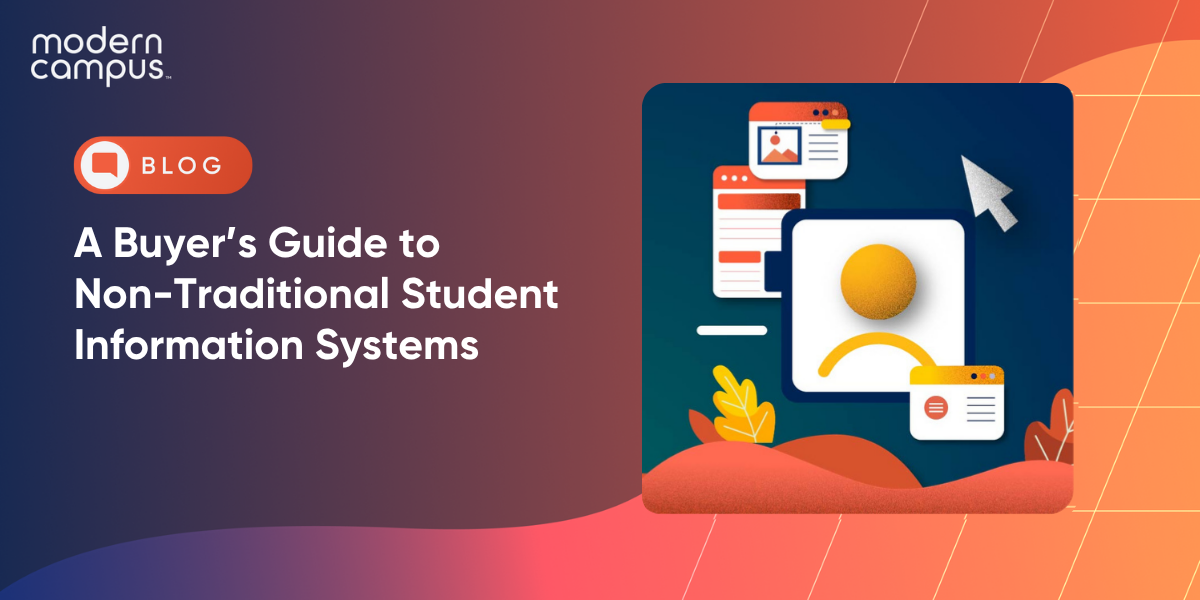4 Ways Colleges and Universities Can Help Students Meet Employer Demands
Conventional wisdom says that employers demand industry-specific skills—and want candidates to prove they’ve got the goods.
To be hired, a public relations candidate will need a portfolio full of outstanding press releases. A software developer will need to ace a coding exam. And a physician assistant better knows how to start an IV.
Certainly, those abilities and knowledge sets are still crucial to workplace success in the 21st Century. But they’re also not enough to get anyone hired today. Let's dive into the skills students need to be successful!
What are Essential Skills?
Amidst a rapidly evolving workforce, anecdotal evidence suggests that employers demand more than just industry-specific knowledge. They want candidates who have ample essential skills—AKA soft skills or core skills—and the ability to prove those.
Results from a new survey conducted by the National Association of Colleges and Employers (NACE) affirm this trend. Its Job Outlook survey found that employers are seeking evidence of the following key qualities on the resumes, cover letters, and other application materials of the students they’re recruiting:
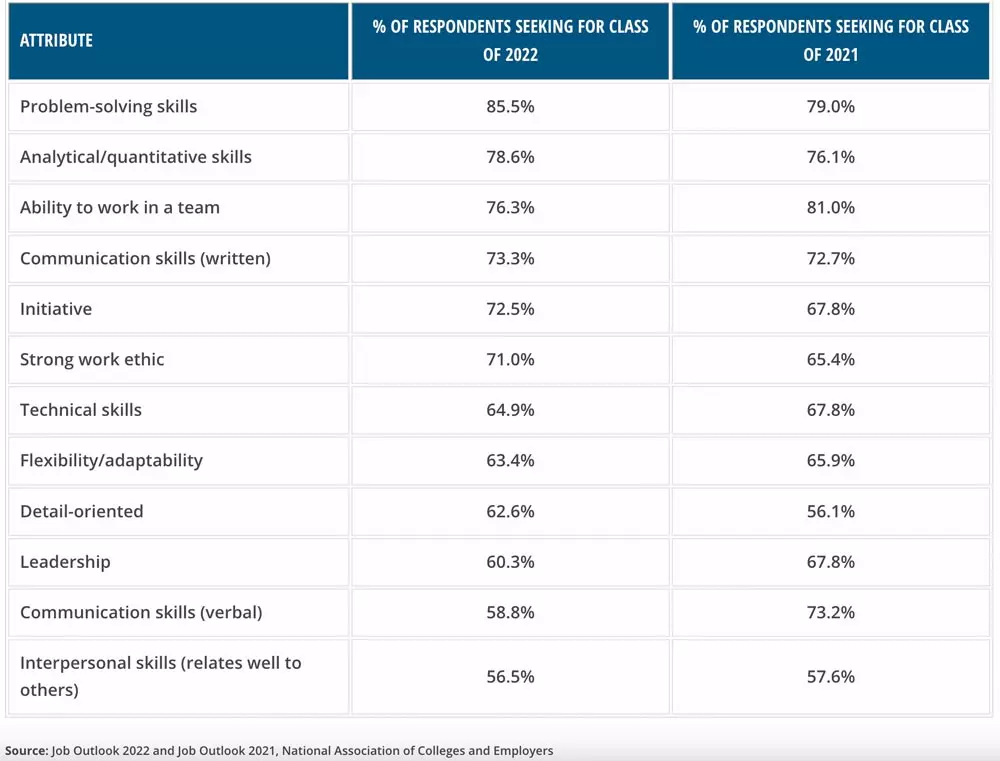
Essential Skills for Students to Develop Their Career
Let’s dive into the top five skills for students' success.
Problem-Solving Skills:
What problem-solving skills are: 85.5% of employers want new applicants to have this skill. Problem-solving involves using a set of many other skills—including critical thinking skills, strategic management, decision-making, creativity, and information processing—to propose, develop and execute solutions to workplace challenges.
How higher education helps students advance their problem-solving skills: Higher ed constantly challenges students to overcome problems related to their coursework, interpersonal lives, financial well-being, and more. By empowering students to develop their own creative solutions, rather than handing them proven strategies, colleges and universities help them gain and perfect their problem-solving skills.
Analytic Skills
What analytical skills are: The jobs site Indeed.com defines analytical skills as “the traits and abilities that allow you to observe, research, and interpret a subject to develop complex ideas and solutions.”
How higher education helps students advance their analytical skills: Coursework frequently requires students to collect and interpret diverse, complex findings related to a single subject. Every time a student writes a paper, completes a project, or takes a test that requires them to synthesize and explain information, they flex their analytical skills.
Many high school tests may have only required students to memorize and recall facts. Colleges and universities should move beyond that, challenging students to interpret and critique information to gain analytical skills.
Abilty to Work in a Team
What teamwork skills are: The ability to work well within a team requires a mix of other skills—including communication,
conflict resolution, relationship-building, and reliability—that together make an
individual a valued member of a team with high collaboration skills.
How higher education helps students advance their teamwork skills: Group experiences can go a long way in promoting teamwork skills.
Ideally, colleges and universities should think beyond the classroom. Being an active member of campus clubs and organizations, attending social events, and engaging in other group experiences will naturally challenge students to use skills that will make them valued teammates at your institution—which will inform their approach to team projects in the workplace.
Written Communication Skills
What written communication skills are: Successful students do not need to become talented poets, novelists, or screenwriters to be strong written communicators.
The modern workplace requires employees to write emails, take notes, draft reports, plan reports and contracts, send text messages, compile help articles, and more. So, for nearly any role, employers value applicants who can communicate effectively, concisely, succinctly, and in an appropriate tone.
How higher education helps students advance their written communication skills: Higher ed institutions can help students gain written communication skills by not only requiring them to write but by being strategic in pressing them to write better. Faculty can point out flawed writing in academic essays, advisors and mentors can ask students to explain themselves and emails better, and the Writing Center can host free workshops.
Initiative Skills
What initiative is: Taking initiative involves using available resources to propose, manage, or complete work without specifically being told to do so. It requires employees to recognize problems, seize on ideas and be proactive in planning their own tasks.
How higher education helps students advance their written communication skills: Taking initiative can be scary, especially for new employers who may not yet feel confident in their abilities or relationship with their employer.
Colleges and universities can help students take the initiative right off the bat by encouraging students’ autonomy. Asking students to make their own decisions, take steps to execute their ideas, and run for leadership roles can all get them into the habit of taking the initiative.
How can Institutions Help Higher Ed Students?
The demand for core skills can be fantastic news for higher education, as colleges and universities are well-positioned to empower essential life skills for students.
But, without preparing students to communicate their acquired skills effectively, a frustrating disconnect emerges. A 2021 survey conducted for the American Association of Colleges and Universities (AACU) found that only 40% of employers think recent candidates are “very effective” at communicating the skills acquired through higher education.
If the learners are indeed gaining employer-demanded skills, it does not mean much to employers who aren’t seeing the evidence. And that means that learners aren’t getting the number one thing they want out of higher education: better career prospects.
In a survey conducted by New America, 91% of responding students said that improving their employment opportunities was an “important” or “very important” motivating factor in their decision to attend college.
No institution can afford to let more than nine out of ten students down; enrollment and retention goals won’t allow it.
Institutions must develop strategies to help develop studients' abilities for the workplace that are in high demand and articulate the attainment of such skills.
Here are three savvy strategies that do just that.
1. Make the ROI of higher education abundantly clear
Don’t leave prospective and current students to guess examples of essential skills they’ll need to be successful in the workplace. State them clearly on your website.
With Modern Campus Pathways, you can showcase skills specific to more than 1,600 occupation groups. Plus, by providing salary and projected growth data, you can help students make informed career choices so that they—in collaboration with career services—can strategize a plan for developing the skills they’ll need most.
2. Design robust co-curricular programs
As your institution’s student affairs team knows well, students can learn and improve their essential skills through opportunities outside of the classroom—AKA co-curricular programs.
But to maximize these benefits, opportunities must be designed with built-in learning outcomes. You can support students skills attainment by making it clear to everyone—program planners and student participants alike—what abilities students will learn and how.
Better yet, institutions should make their co-curricular experiences interconnected. Think learner journeys, not individual stops.
Through Modern Campus Involve, you can design robust co-curricular frameworks that tie opportunities together from all across campus. For example, a student who first learns key communication skills through a debate team can challenge themselves further through a credit-based internship. Better yet, outcome frameworks empower the crucial component employers are looking for: skills articulation.
3. Foster a culture of self-reflection
As we previously explored, reflection isn’t just a nice-to-do exercise; it’s a critical part of the learning cycle. Ongoing reflection solidifies student learning, making each new experience—whether inside or outside the classroom—part of the student’s developmental journey.
Self-reflection also helps students learn to articulate their abilities to employees, which is an important skill. Colleges and universities can incorporate reflection exercises into academic courses, co-curricular activities, leadership programs, service-learning opportunities, and more to get students into the habit of naming, defining, and elaborating on their skills.
Continuous self-reflection will teach students how to share their development journeys so that they connect lines on their resumes to the job description. For example, an orientation leader should be able to explain how that leadership role helped shape them as an outstanding team player or boosted their communication skills.
One smart first step in promoting a student culture of greater self-reflection is to design forms, ideally online, that ask students pointed questions. Modern Campus Involve makes it easy by automatically prompting students to complete reflections after they’ve finished certain experiences. All reflections are then saved to the student’s involvement record for easy review anytime.
4. Adopt co-curricular transcripts
Traditionally, the only time a graduating student or recent alum will bring up the skills they developed through co-curricular experiences will be if a hiring manager happens to ask directly about it.
This is a huge missed opportunity—for the student, the employer, and all of higher education.
One smart way you can fill in that gap is through co-curricular transcripts, an official written record of everything a student did and learned outside of the classroom while at your institution.
You can assure the accuracy of your students’ transcripts by using check-in technology to confirm event attendance and reflections to confirm development. And with Modern Campus Involve SmartTranscripts, you can sync all of a student’s completed and in-progress experiences, certifications, points, service hours, and skills into one fully-automated, live-updating profile.
From an employer’s perspective, expecting candidates to provide proof of essential skills isn’t too big an ask. And with the right strategies and tools in hand, students’ expectations for your institutions won’t be unreasonable either.
Last updated: June 12, 2023
